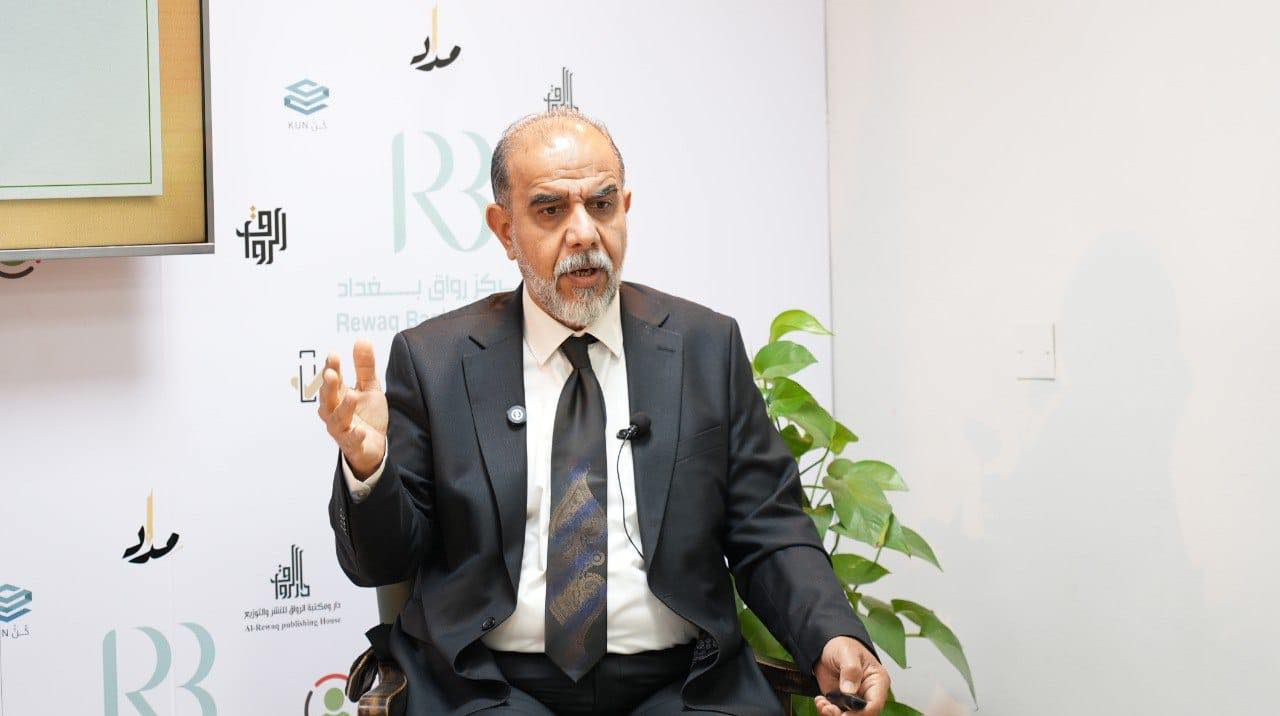 2025 / 13 / Apr
2025 / 13 / Apr
ntelligence and Foreign Policy: Lessons from the Pakistani Experience
This was the title of a session held at the Rawaq Baghdad Center for Public Policy, as part of the "Security and Social Studies Seminar Series"—a research program that presents academic and scientific papers delivered by specialists and researchers on topics related to security and society.
The session was presented by researcher Dr. Abbas Aboud, who explored the model of intelligence as a tool in Pakistani foreign policy and the lessons learned from it, particularly in dealing with violent extremist groups. He also discussed the origins of Pakistan’s intelligence agencies, their security doctrine, how they have evolved since 1947, and their role as a vital component in the country’s comprehensive national security strategy.
Dr. Abbas Aboud emphasized the significance of Pakistan's intelligence community, describing it as “the shortest path to implementing foreign policy”, due to its accumulated experience in dealing with American and Western intelligence agencies, as well as in managing both regional and domestic policy issues.
The session was attended by a group of researchers and experts in security sciences, along with specialists in international relations and postgraduate students. It was moderated by researcher Anwar Al-Mu’min and held at the Jaafar Abu Al-Timman Hall within the Rawaq Baghdad Center for Public Policy.
Would you like this adapted into a summary for a newsletter or event report?